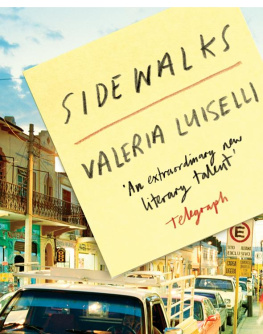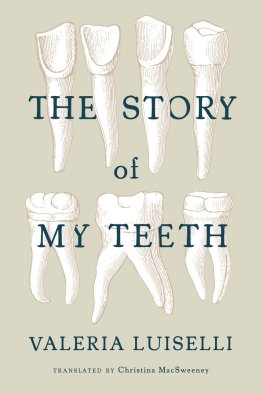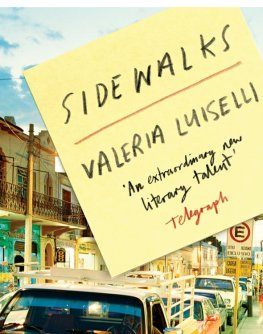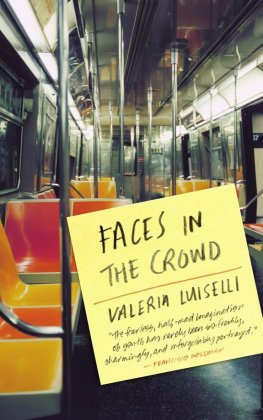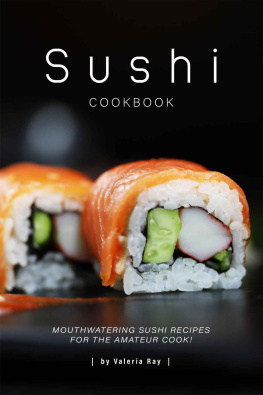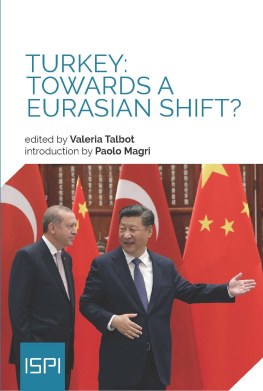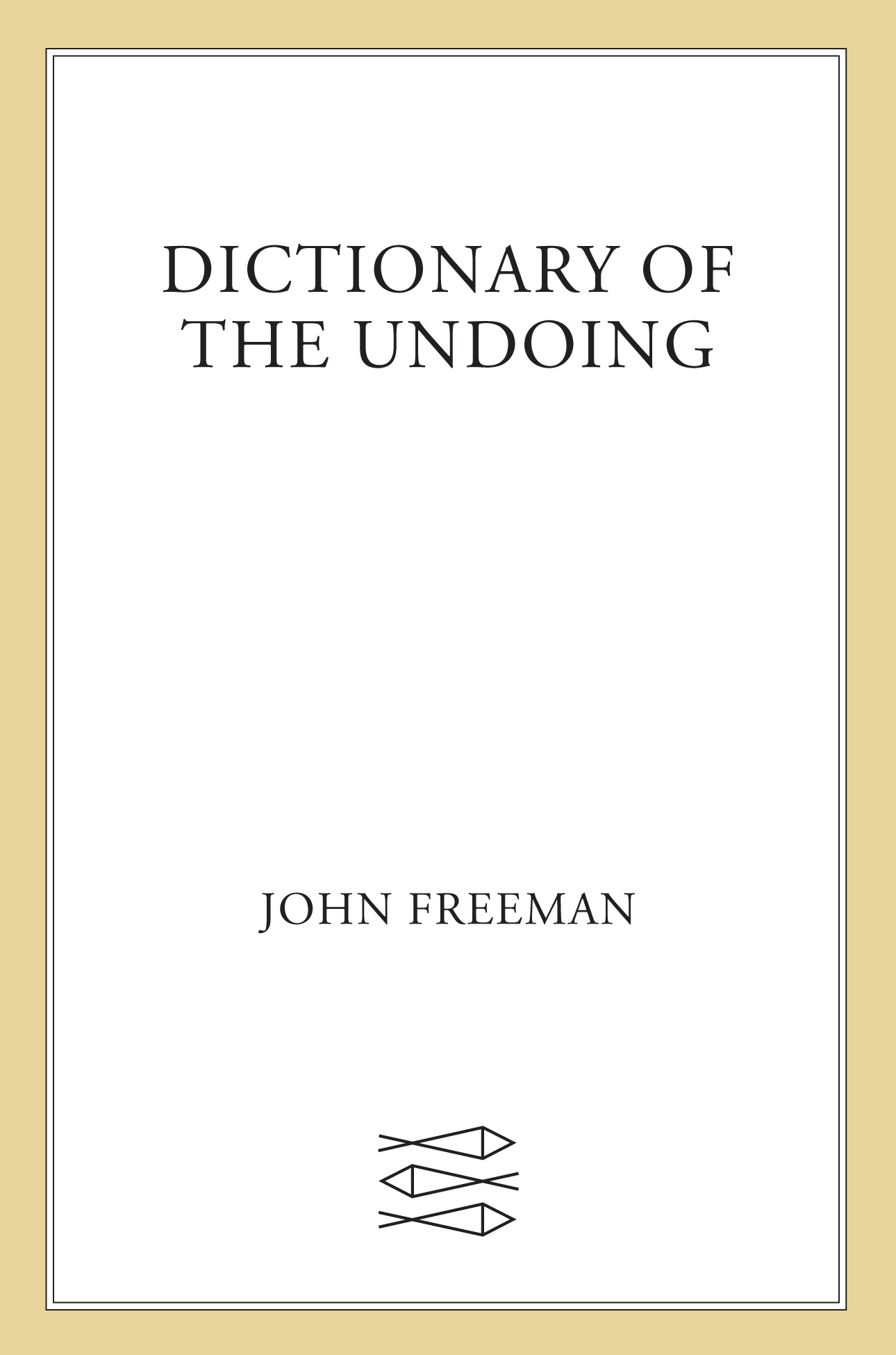The author and publisher have provided this e-book to you for your personal use only. You may not make this e-book publicly available in any way. Copyright infringement is against the law. If you believe the copy of this e-book you are reading infringes on the authors copyright, please notify the publisher at: us.macmillanusa.com/piracy.
Something is very wrong with the world. The disquiet of our times feels like a pause between storms. The body braces for the next wave of thunder and rain. A new agitation lurks around the corner. It can be terrifying; it often is. Take a rest with me for a moment. Lets turn away from the spectacles we are being shown. Theres time, just. Lets back away from the flickering screens. Lets plunge our hands into our pockets, or link them behind our backs, and move into the ionized air all around us. Walk, stroll, wheel. Maybe as we do, we can think about what is happening.
In many ancient tales, it is the king who is blind or blinded. Power, the tellers often warn, robs those who hold it of the ability to see. Yet we are living through a strange era. Our leaders, too, cannot seem to stop the unraveling we are witnessing. Some of them cannot see it; others simply dont care. Some of them are cheering it on, or even driving this destruction. We know this because their every move is reported upon. Never has a society possessed so many tools with which to observe the powerful in public. Our pockets vibrate with updates about their every move, each lightning strike. Then we watch ourselves watching the world burn.
This vigilance is essential. Its also exhausting. It has burned down bonds between us that are essential. Separating the watchers from the huddled. Slotting us into tribes of protest, cones of preservationas if those two postures must be mutually exclusive. As if engagement cannot take the form of self-preservation, and full-time monitoring does not have the priceoccasionallyof isolation. Of loneliness. Of pains protective narcissism.
For one winter I bivouacked on a bluff in my apartment and set up all my tools of sight. The escalation I was watching across the globe toward autocracy had made me outraged, engaged, and then antisocial. Each night I sat up late, noting the changes in the laws of my country. I marked and collated arguments being floated that were based on lies. I tracked those fabrications as they snuck into public debate and gusted on injections of hot air and became lofty assumptions, somehow attaining the heights of accepted truth. Ideas like the notion that one group of people was better than other groups. That there was such a thing as an essential American. An essential Italian. Someone quintessentially British. Or Chinese. That anything challenging these essences was an invasion. I went online and saw other people seeing this ascension of lies, and went to protests where I met fellow travelers who felt the same. We heard our voices being heard by one another; we became part of the spectacle of sight and sound of tumult. The world burned even harder.
I dont believe the registration of our discontent was useless. Recording our dismay was and continues to be very important. But it is not enough to stop the fires we see all around us. They have now turned into infernos. Look at them now as we walk. See them in the near distance? That one scorching through public works, through health care, through educationsee it turning those institutions into husks? The other one racing up hillsides on dry grass? Turning our earth into an overused fuel source? What about the one sealing off borders and turning them into stripes of ash? The ones converting our wetlands and unusable landscapes into deserts, into ruins, into development zones? The ones destroying our sense of privacy? Nothing is more naked than a house after a fire. We are living in such a house. We are standing in it looking out.
The other great price to the vigilance weve kept has been a reduction in our capacities. As if all we possess is the ability to resist. To say no, to register our disagreement. Our distrust, our disgust. Our dislike. Our contempt and our scorn. We are banding together into tribes of unshakable belief as a result of this notion, thanks in part to the technology with which we register our shouted disputes. Sometimes, under the greatest forms of control, this right is taken from us, too. Some of us are not even allowed to speak, to go onlineor step into a public squareand see who shares our resistance.
What if a storm is not the correct metaphor, though? I have been speaking symbolically, so why not be specific? We are living through one of the greatest transfers of wealth in human historyof assets and money, of labor and its valueand the force that is required to continue this transfer, to make its consolidation of resources permanent, has now reached a critical level. An imbalance of power so flagrant requires violence. The beneficiaries of this situation have begun to label as fungible certain human beings. They have begun trumpeting fantasies of purity, which is what nationalism is fundamentally. Ultimately, these fantasies lead to wars, which is what humans resort to when they abandon reason or know something is unfair. Change instituted by force. It has already led to armed resistance. War is what humans turn to when their cries of pain are ultimately no longer heard.
What if the story, as Ive been telling it above, is wrong, though? What if all this is merely a passing fever? What if it is more like a curse? What if it is a possession? What if our leaders are not blind and instead know precisely what they are doing, and our disquiet comes from this sneaking awareness? Doubt, our friend in times of confusion, has turned against usinspiring paranoia. We are experiencing all this confusion. Maybe what needs to be told isnt a story at all but a kind of long psalma litany of mourning. Of species grief.
This book is an attempt to ask these questions. The main ones it will pose are three: What if our capacity to imagine has been so badly damaged by the information climate of our times that destruction is all we can see? What if deforming our ability to imagine the present is precisely what governments and power systems do to control us? And what if I told you we have the power to change this? I believe we do. To seize this power requires a radical change in perspective, however. To do so, we need to take one tool being vandalized before our very eyeslanguageand reclaim it, and redefine what it means to be an ethical citizen in the present moment. We do not need to hunt the terms that have been weaponized into nonsense; we need to grab the words that have possibility in them and begin using them anew. Using these words expansively, carefully, and with the full extent of their meaningeven if it is first in our headswill ultimately lead to action.
I had this revelation in the spring, a year into the long crisis that is the present moment in the United States, many years into the unfolding crises that are affecting most of the countries around the world. After my winter on the bluff, I realized I needed stronger tools if I wasnt simply going to watch and record what was happening. I packed up my long-range scopes and found, rummaging through my house, that these stronger tools lay in disrepair around me. Rusted bits of language that had fallen into disuse but still existed. Broken words that had been melted down to their simplest component partsshorn of their complexities. These words lived in books and sometimes sprang right out there in the open from the mouths of my friends and loved ones.


